“Even if I shame myself, / please be kind to me,” E.J. Koh entreats an unidentified listener in “Showtime,” the opening poem of her poetry collection, A Lesser Love, winner of the Pleiades Press Editors Prize for Poetry. The speaker’s vulnerability in these poems often draws the reader into the position of intimate witness, even confessor, as she addresses a series of “yous” who are at turns parents, ghosts, and lovers, and who sometimes remain unidentified. Koh, a poet and literary translator of Korean and Japanese, spent many of her teenage years in the United States separated from her parents after her father received a job offer in South Korea. A Lesser Love deals with estrangement of many kinds: from family, from country, and from one’s own body. The book also ruminates on the complications of estrangement. It is both the negative space and a reminder of former closeness; one can only be estranged from someone with whom one was once intimate. In “Father in His Old Age,” the speaker discusses the Korean belief that one is “born / the parent of the one you hurt most.” “In our unhappiness, we both want to know / we cannot pay enough. Pain becomes meaning,” she comments at the end of the poem. Tracing legacies of pain, Koh suggests, can help make sense of the past. However, considering the multiple denotations of “become,” does she also suggest here that pain overcomes meaning or, more darkly, that pain suits or even flatters the making of meaning?
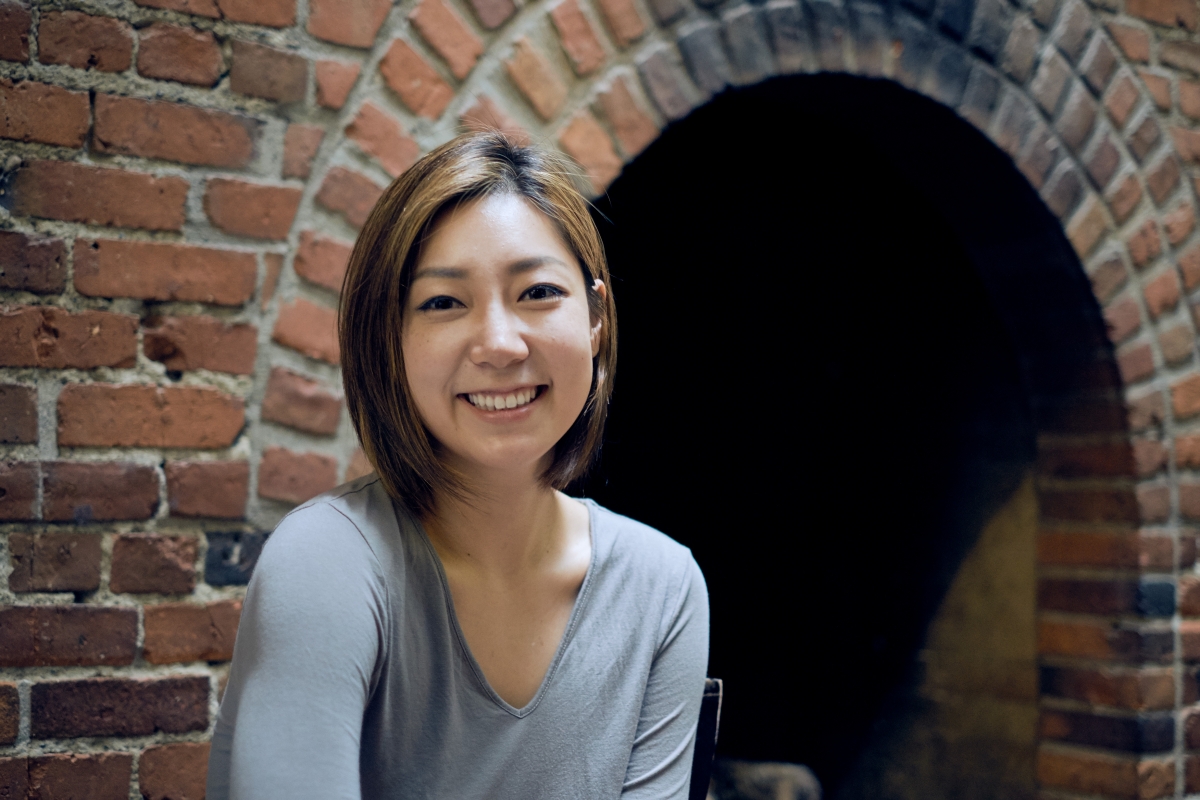 “There is no big bright word for leaving,” she writes in “Trilogy.” Since absence, after all, is not something that is, but rather the negative space of what-no-longer-is, the only way to understand absence is to trace its effects on others. In “1807 Oleander,” the speaker describes how she wears her mother’s lotion on her wrists, how the packets of kimchi her mother sends ripen before they belatedly arrive, and how her mother’s letters are filled with “foreign squares, short crosses, / stops, points –.” These reminders of her mother — the scent of the lotion and her mother’s handwriting — do not draw her closer to her mother but further expose the distance between them as what was once familiar becomes foreign. “A-802 Adena Luce” shows us an unnamed caretaker placing a pair of socks on the nightstand so the speaker will feel as if she had been in the room yesterday and “wouldn’t feel the foreigner.” While this gesture demonstrates the caretaker’s good intentions, the speaker notes that her mother “wouldn’t worry” about such things. The tension in this collection lies in the question of whether, given such legacies of absence, longing, and pain, meaning can be made apart from them. In “South Korean Ferry Accident” — about the 2014 sinking of the Sewol Ferry in which 276 people died, 232 of them students — Koh writes, “They’re 15 years old. At that age, I believed in God. / Who says love that is painful is not love?” The underlying question Koh seems to consider in the first two sections of the book, “Heaven” and “War,” in which love and intimacy almost always appear alongside pain and absence, might be, “Who says love that is not painful is love?”
“There is no big bright word for leaving,” she writes in “Trilogy.” Since absence, after all, is not something that is, but rather the negative space of what-no-longer-is, the only way to understand absence is to trace its effects on others. In “1807 Oleander,” the speaker describes how she wears her mother’s lotion on her wrists, how the packets of kimchi her mother sends ripen before they belatedly arrive, and how her mother’s letters are filled with “foreign squares, short crosses, / stops, points –.” These reminders of her mother — the scent of the lotion and her mother’s handwriting — do not draw her closer to her mother but further expose the distance between them as what was once familiar becomes foreign. “A-802 Adena Luce” shows us an unnamed caretaker placing a pair of socks on the nightstand so the speaker will feel as if she had been in the room yesterday and “wouldn’t feel the foreigner.” While this gesture demonstrates the caretaker’s good intentions, the speaker notes that her mother “wouldn’t worry” about such things. The tension in this collection lies in the question of whether, given such legacies of absence, longing, and pain, meaning can be made apart from them. In “South Korean Ferry Accident” — about the 2014 sinking of the Sewol Ferry in which 276 people died, 232 of them students — Koh writes, “They’re 15 years old. At that age, I believed in God. / Who says love that is painful is not love?” The underlying question Koh seems to consider in the first two sections of the book, “Heaven” and “War,” in which love and intimacy almost always appear alongside pain and absence, might be, “Who says love that is not painful is love?”
Koh’s work burns most brightly in taut lines and turns of phrase — subtle gestures that reveal intimacies played out in increments of advance and retreat; the war between the Koreas becomes framed as an intimate domestic drama. “Aren’t you the North, and I the South?” she asks in “Korean War,” and says later, “I cannot forgive you for cutting me out.” Is the war between the Koreas a metaphor for the estrangement of family or the other way around? Or can one draw a clear distinction between the two? And now, more than 60 years after the armistice was signed, the volatile relationship between the two countries is defined as much by their commonalities as the separation between them. The poem concludes with an image of a mass execution of Korean spies: “The man nearest to the camera fiddles with his blindfold / until it rests comfortably over his eyes.” The moment draws the reader closer to the action by zooming in on that man and, in doing so, makes the reader witness to what seems to be something almost unbearably intimate as he seeks a fragile moment of comfort before his execution. By narrowing the focus of the poem in this way, Koh situates us as witnesses as she holds our eyes to the camera lens. One almost wants to reach out and help the man with the blindfold even if, in the end, there is nothing one can do to stay the execution. We cannot save him although we are irrevocably implicated as witnesses. We have seen; what now?
In the third section of the book, “Love,” the poems ease away from the imagery of teeth, knife, concrete, bone and give way to images of that which is light, changeable, and fluid: rivers, lakes, wind, air. This is not to say that these poems are less difficult or detached from the violence and longing of the previous sections. Despite the relative lightness of these concluding poems, it is not transcendence that Koh’s speaker achieves, either through escaping the cycles of suffering of the physical world or through the crucible of a martyr’s tribulation. It is a release conjured from, and thriving within, the guts, dirt, and matter of the physical world:
Crisis is shaped like an owl pellet we open together,
the tiny bones, beaks, and fur. There is a little tooth, a puff
of feather. The further we peel back the translucent layers,
the more heaven is dimmed by our bright and curious joy.
—“For Adam”
It is through being present in the muck and mire of the real world that yields a means of liberating oneself from the pain of the past — an immanent, rather than transcendent, peace. In The Seattle Channel’s video profile, Koh speaks about how becoming a poet allowed her to rewrite her own history, to become a “time mechanic.” By revisiting the letters her mother sent her years ago, Koh now is able to see the love that was always there that she did not, or could not, recognize at the time. Later on in “For Adam,” Koh goes on to write, “We are witnesses of each other. // Afterword, we are unconcealed. Soon there is no / difference between words, and then things. We are beginning.” In the end, A Lesser Love seems to suggest we are renewed not by powers from without but by the both the power and fragility of choosing to be present, of seeing and allowing ourselves to be seen.






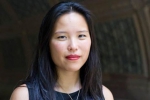
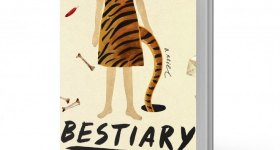
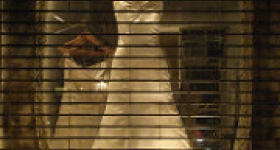
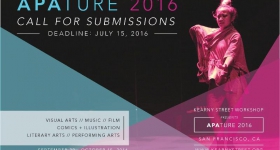
Comments